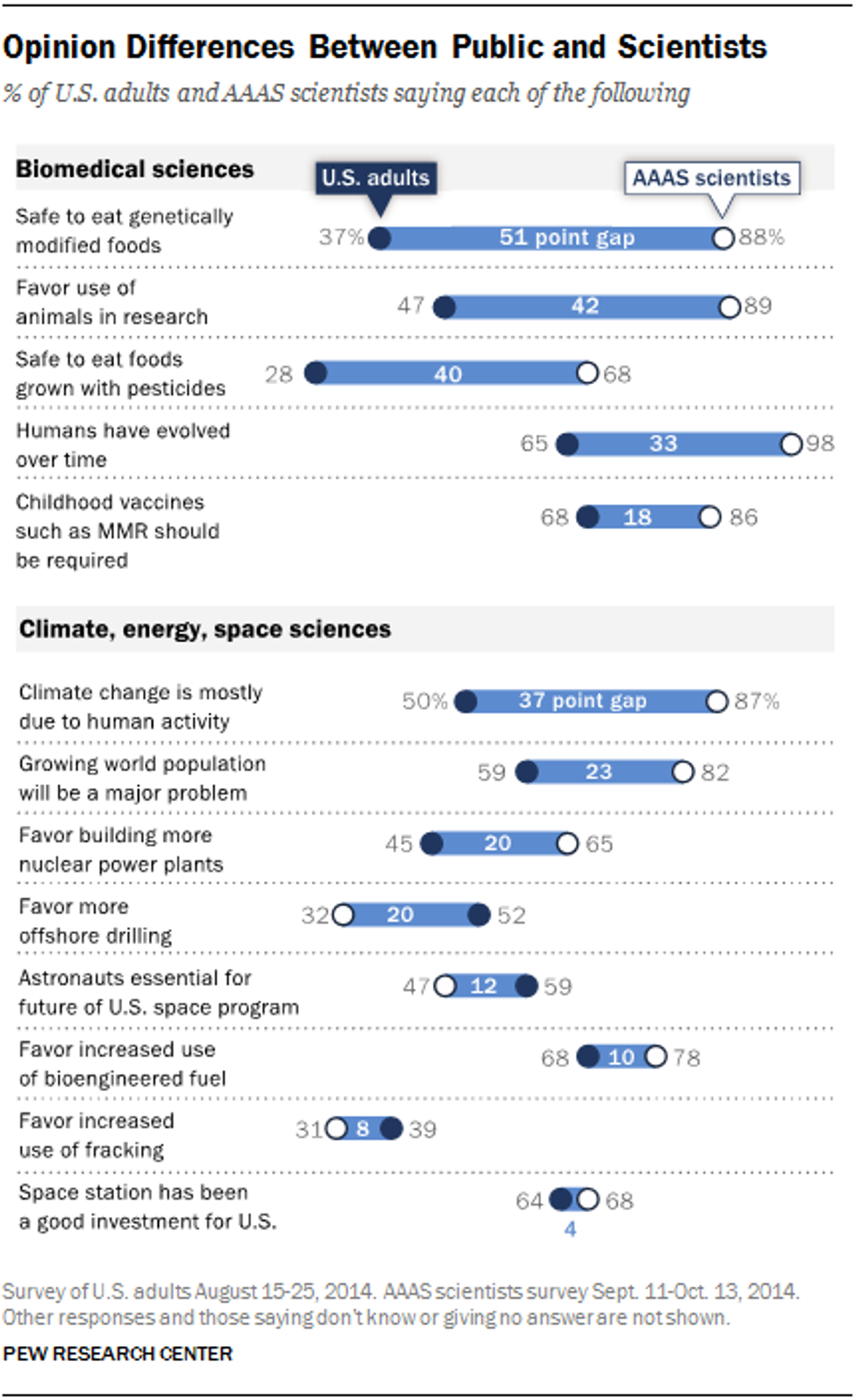It has been difficult for me to come to terms with the results of this election, like so many others all over the country, but I have come to accept that sulking and hoping for some faithless electors is not a solution. And being a biochemist, I’m all about solutions.
President-elect Donald Trump’s stance on climate change has been extensively reported, and he has made it clear that so far he intends to disregard overwhelming scientific evidence and stop federal support towards clean energy and carbon-minimizing efforts1. In addition, both Trump and VP-elect Pence have exhibited several very anti-scientific behaviors and comments2,3,4, which, coming from the next leaders of the most technologically advanced country in the world, is frankly very worrisome. But instead of dedicating an entire article on addressing concerns that have already been reported on, I am going to try something else: move forward.
Now more than ever, it is the responsibility of scientists to democratize scientific research. This election saw the emergence of a “post-truth” era5, where facts are subjugated by sensationalism and public outcry. Science has come under attack from many sides, whether it is climate change or vaccinations, mainly due to a lack of knowledge and understanding. Although science is generally viewed as a positive force in the eyes of the American public, there are a lot of gaps between opinions of scientists versus non-scientists in a number of key politicized issues6, such as genetically modified foods, animal use in research, evolution, and others. While government-funded research does elicit enormous public benefit overall, the average citizen doesn’t actually get to perceive the civic benefit unless it affects him or her directly. That needs to change. Science and impartial data need to once again be at the forefront of public policy.
Source: Pew Research Center.
But how do we do that? How do we make science more accessible, more open, and more credible to the public? If you are a non-academic but a science enthusiast, fact-check what you read or see online, share accurate information among your peers, and listen to qualified experts, even if you don’t like what you hear. Be cautious of sensationalist media, and don’t be swayed too much by passing trends. Understand that proper scientific research is objective and progresses in small increments, and builds upon itself. If you are a scientist, then immerse yourself in your community and have conversations. Publications behind paywalls and technical jargon are nowhere near enough. Advocate for open-access journals, write blogs, teach classes to children, and go out into your community and be seen by others. Simplify and explain, but don’t “dumb down.” It’s time to descend from our ivory towers and step forward to face this challenge head on. You’ll find me right there with you.
References:
1. "President-elect Donald Trump doesn't believe in climate change. Here's his platform on the environment." Rebecca Harrington. Business Insider. Nov 9, 2016. http://www.businessinsider.com/donald-trump-climat.... Accessed Nov 17, 2016.
2. "Trump and Pence on science, in their own words." Sarah Kaplan. The Washington Post. Nov 10, 2016. https://www.washingtonpost.com/news/speaking-of-sc.... Accessed Nov 17, 2016.
3. "Donald Trump's US election win stuns scientists." Jeff Tollefson, Lauren Morello, and Sara Reardon. Nature News. Nov 9, 2016. http://www.nature.com/news/donald-trump-s-us-elect.... Accessed Nov 17, 2016.
4. "Donald Trump's Running Mate Has Some Truly Strange Views on Modern Science." Sy Mukherjee. Fortune. Jul 15, 2016. http://fortune.com/2016/07/15/mike-pence-donald-tr.... Accessed Nov 17, 2016.
5. Oxford Dictionaries, Word of the Year 2016. https://en.oxforddictionaries.com/word-of-the-year.... Accessed Nov 17, 2016.
6. "Public and Scientists’ Views on Science and Society." Cary Funk and Lee Rainie. Pew Research Center. Jan 29, 2015. http://www.pewinternet.org/2015/01/29/public-and-s.... Accessed Nov 17, 2016.








 mr and mrs potato head
StableDiffusion
mr and mrs potato head
StableDiffusion










